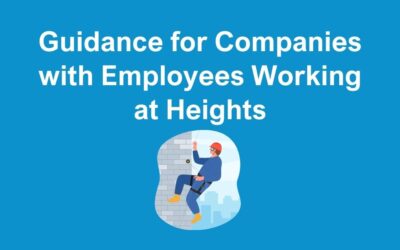HR departments can use vehicle trackers to pinpoint the location of their employees.
The latest GPS technology used to create in-vehicle trackers allows HR departments to access data regarding their employees’ work vehicles and locations. Whereas some see this GPS technology as automotive spyware and an invasion of privacy, others see it is as vehicle tracking technology that allows businesses to improve their operations and keep staff safe.
Employees have a duty to their employers to do their jobs, but it is fair than in return they are granted respect for their privacy. If staff think you are using in-vehicle tracking systems to check up on them, it is going to be detrimental to your employee / employer relationships.
If you are going to use vehicle tracking technology, your HR department needs to be able to justify a good reason to do so. Below we have provided a number of ways vehicle tracking technology can be used responsibly.
Using vehicle tracking as a safety measure
One of the ways HR departments can use vehicle tracking responsibly is as a safety measure. HR departments should feel compelled to know where their staff are so they can check that they are safe. Health and safety regulations make company directors personally responsible for the safety of their workers and therefore give HR departments a good reason to use this technology.
Using GPS tracking technology allows employers to monitor their employees’ whereabouts and check that they are in a safe location. In the case of an emergency, the data from an in-vehicle tracker can be used to pinpoint their whereabouts and help to provide immediate assistance.
GPS tracking technology can also be used to monitor how long employees are out on the road, to check that they are not working too many hours and going against health and safety regulations.
Tracking information for vehicle theft
Tracking information sent from in-vehicle GPS devices can also be incredibly useful if a company vehicle is stolen. The data can be handed over to the police so they can pinpoint the whereabouts of the vehicle and attempt to catch the criminal.
Using vehicle tracking for mileage claims Another way HR departments can use vehicle tracking technology responsibly is for processing mileage claims. The data collected can be used to create automated mileage reports, preventing figures from being exaggerated.
Using vehicle tracking for planning
Delivery companies can use GPS tracking to help them plan more efficient routes.
Finally, a responsible way that HR departments can use vehicle tracking is for future workforce planning. The data collected from the tracking technology can be analysed and used to create better journey plans in order to increase speed and efficiency.
Companies may also be able to use the data collected to help allocate their resources more effectively. For example, a delivery company may analyse their GPS data and find out that they can reduce the number of vehicles out on the road, whilst still providing the same level of service to customers, saving them a significant amount of money.
Keep employees informed
The best way to implement vehicle tracking in your work place is to communicate with your employees and keep them informed. Make sure that they understand your reasons for using the tracking software and what you will and will not be doing with the data you collect. It is important that they know that you are using the tracking software to keep them safe and to improve your operations, not to check that they are doing their jobs!
Ensuring employees feel part of the decision to use vehicle tracking technology at your business and educating them on your reasons for doing so will help to avoid disputes and ensure that everyone is using the technology responsibly. For more information contact us at The HR Booth.





